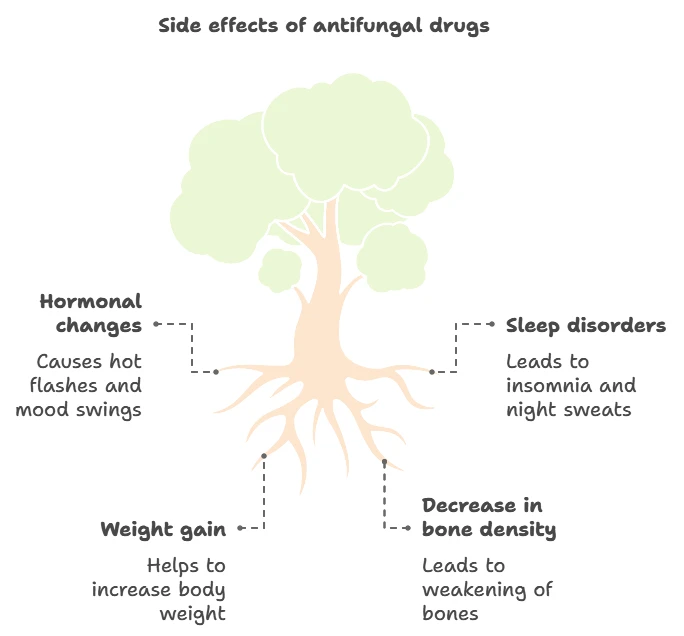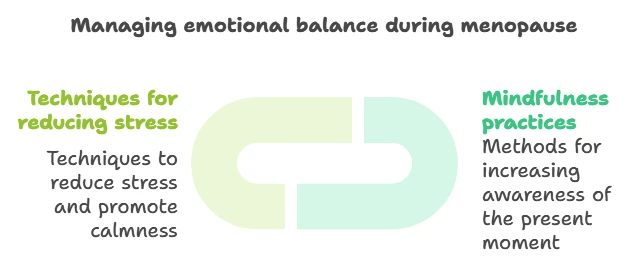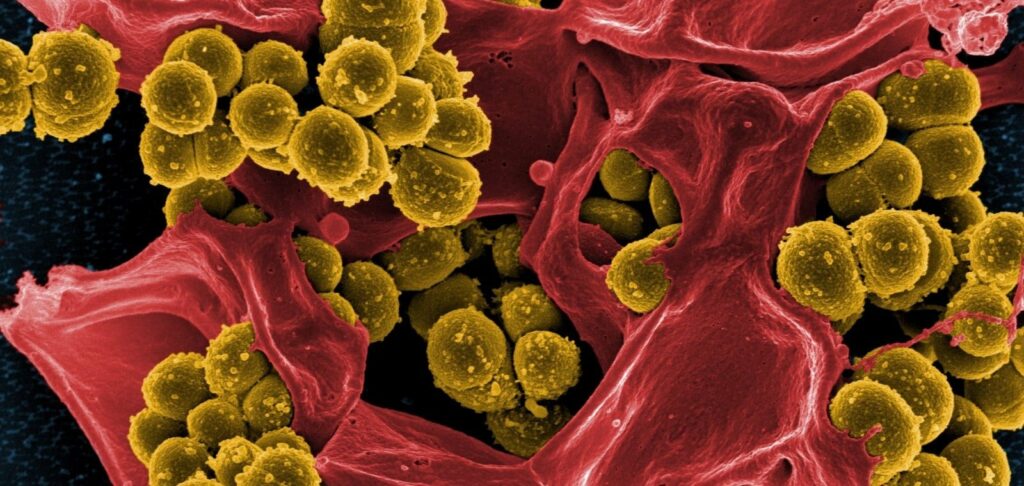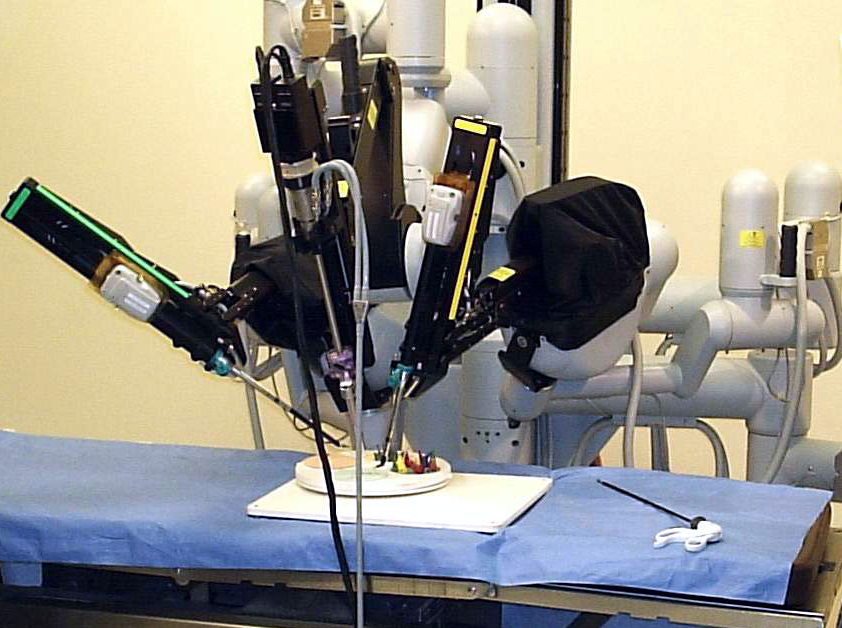

Menopause is a natural stage in every woman’s life, marking the end of the reproductive period.
Although it is a normal biological process, it can be accompanied by various physical and emotional changes that affect daily life.
Understanding and managing these changes will help you to go through this period with confidence and peace of mind.

Understanding menopause
Menopause usually occurs between the ages of 45 and 55, with an average age of 51. It is defined as the absence of menstruation for 12 consecutive months.
It is preceded by perimenopause, during which hormonal fluctuations can cause various symptoms.

Common symptoms of menopause:
- Hot flashes
- Night sweats
- Mood swings
- Sleep disturbances
- Weight gain
- Decrease in bone density

A scientific look at menopause
Research shows that decreased estrogen and progesterone levels during menopause affect various body systems.
According to a study published in the Journal of Women’s Health (2020), hormonal changes can affect the cardiovascular system, bone density and mental well-being.
Table 1: Changes in hormone levels during menopause
| Hormone | Before menopause | Post-menopause |
|---|---|---|
| Estrogen | High | Low |
| Progesterone | High | Low |
| Follicle-stimulating hormone (FSH) | Low | High |

Managing emotional wellbeing
Maintaining emotional balance during menopause is extremely important.
Research suggests that mindfulness practices and stress reduction techniques can reduce mood swings and anxiety.
Recommendations:
- Mindfulness meditation: Regular practice can help reduce stress levels.
- Physical activity: Exercise promotes the production of endorphins, improving mood.
- Healthy eating: A balanced diet supports overall health.

Strategies for maintaining physical health
Lifestyle changes are helpful in alleviating physical symptoms.

Recommendations:
- Temperature regulation: Dressing in layers helps with hot flashes.
- Sleep hygiene: Establish a regular sleep schedule.
- Bone care: Include calcium and vitamin D in your diet to strengthen bones.
Table 2: Essential nutrients during menopause
| Nutrient | Recommended daily allowance | Benefit | Sources |
|---|---|---|---|
| Calcium | 1,200 mg. | Bone health | Dairy products, greens |
| Vitamin D | 600-800 IU | Calcium absorption | Sunshine, fatty fish |
| Omega-3 fatty acids | 1,000 mg | Heart health, mood support | Flaxseed, walnuts, fish |

Seeking professional support
Menopause can cause a variety of physical and emotional symptoms that affect quality of life. Seeking medical professional help to develop individualized strategies to manage them effectively.
Consultation with medical specialists
- Personalized approach: The doctor will assess your symptoms and general health, offering personalized recommendations.
- Health monitoring: Regular check-ups allow you to detect and prevent possible complications in a timely manner.
- Informed: Getting reliable information from a professional reduces anxiety and helps you make informed decisions.
Hormone replacement therapy (HRT)
- What it is: GHT replenishes estrogen and progesterone deficiencies, alleviating menopausal symptoms.
- Benefits: Reduces hot flashes, improves sleep, supports bone health.
- Risks: Possible side effects and increased risk of some diseases.
- Importance of counseling: The decision to use HRT should be made with your doctor after assessing the risks and benefits.
Alternative methods of support
- Phytotherapy: Some herbs and phytoestrogens can relieve symptoms but require consultation with a doctor.
- Psychological support: Psychotherapy and support groups can help you cope with emotional difficulties.
- Lifestyle: Regular exercise, a healthy diet and relaxation techniques contribute to overall well-being.

Conclusions
Menopause is a significant transition period, but with the right strategies and support, women can maintain their well-being and embrace the new stage of life.
Adopting healthy habits, staying informed through research and seeking professional help are key steps to staying calm and balanced during menopause.



